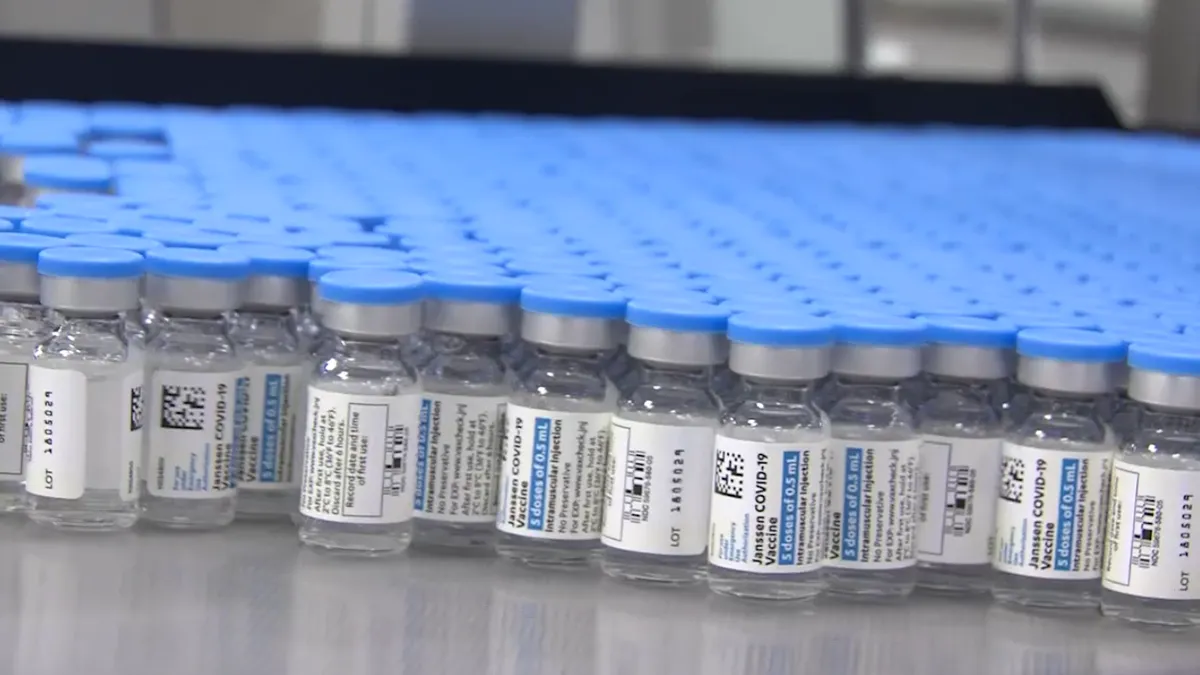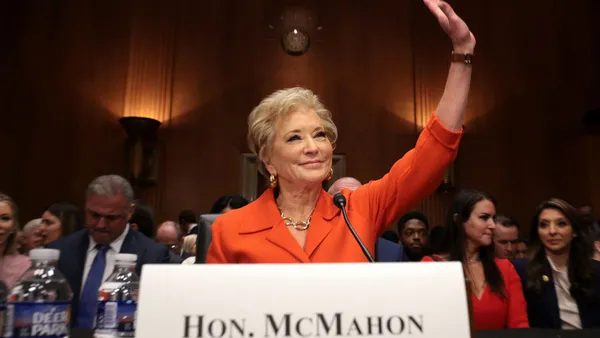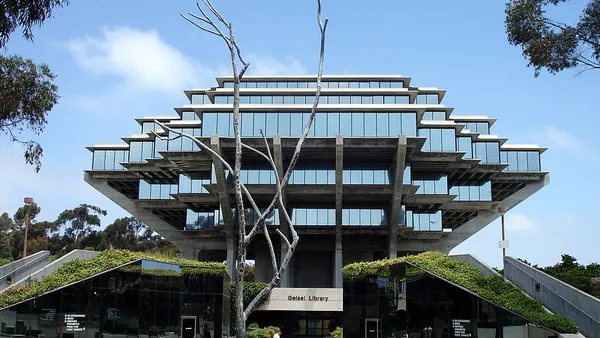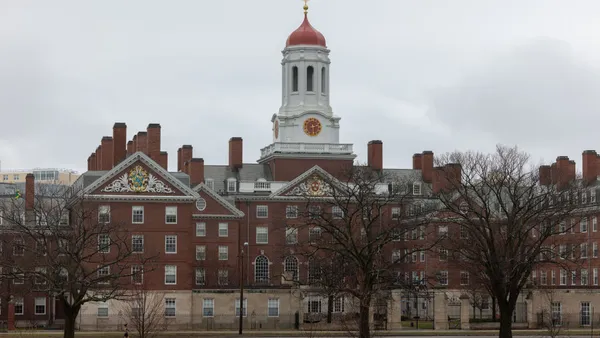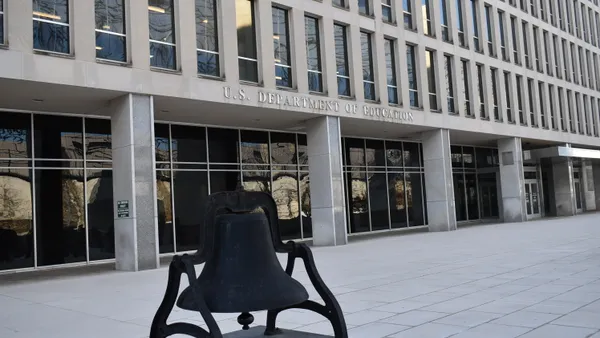Dive Brief:
- As the end of the academic year approaches, the recommended pause in administration of the Johnson & Johnson coronavirus vaccine is complicating some plans to vaccinate college students while they're still on campus.
- The news coincided with efforts by at least two states — Ohio and Iowa — to send doses of that vaccine brand to schools. The states have since said vaccination sites should stop giving out those shots until more information is available. Student vaccination initiatives at schools elsewhere were also affected.
- Some colleges have been able to connect students scheduled to receive the J&J shots with either the Pfizer or Moderna vaccine.
Dive Insight:
Federal health agencies on Tuesday recommended pausing administration of the shots "out of an abundance of caution" after six recipients — all women between the ages of 18 and 48 — developed a rare blood-clotting disorder. Some 7 million people in the U.S. have received the J&J shots so far. It is one of three coronavirus vaccines approved for use in the U.S.
The pause came as targeted allocations from at least two states — Ohio and Iowa — helped initiate or expand student-focused vaccination efforts on college campuses.
Baldwin Wallace University, a private institution in Ohio, was not planning to vaccinate students prior to the notice from the state announcing it was sending a supply of the J&J vaccine. However, the university was "quickly able to ramp up a communications and a clinic process," a spokesperson said in an email earlier this week. It expected to vaccinate around 1,200 students over the course of a five-day clinic, which wrapped up the day before the pause.
A release from the Ohio governor's office Tuesday said the majority of Ohio's J&J doses had been sent to mass vaccination sites and 63 public and private four-year colleges, most of which had already finished vaccinating students. Of the schools with vaccinations still underway, most were able to offer either the Pfizer or Moderna vaccines. Eight sites, five of which are university-affiliated, would pause for the week.
Wade Robinson, director of student development at Des Moines Area Community College, said officials there were working to secure a partnership with a local health clinic to offer vaccines to its campus when a surprise allocation of J&J doses from the state of Iowa allowed the institution to accelerate its plans.
It offered a vaccination clinic through a pharmacy partner with 1,000 doses from the state prior to the pause. It's now planning to connect students with other vaccine brands through additional clinics.
The University of Iowa's student health center received 1,400 J&J doses, 500 of which were administered before the pause, according to a spokesperson.
Whether colleges can secure another brand of vaccine will depend largely on the state's supply of those shots and their ability to get them to schools before the academic year ends, Anita Barkin, co-chair of the American College Health Association's COVID-19 Task Force, said in an email.
They will also have to consider the logistics of providing each student with the second shot that the Pfizer and Moderna vaccines require.
"Since J&J is a one shot vaccine, it offers a significant advantage to schools trying to vaccinate students before they leave campus," Barkin wrote. "We were hopeful that J&J would provide an opportunity to vaccinate a great number of college students before the summer."
The Biden administration asked states to make all adults eligible for a coronavirus vaccine by April 19, moving up an earlier deadline of May 1. Some colleges have cited news of expanded vaccine access when announcing they will require students to get the shots in order to take classes on campus next fall.
Nearly half of 367 colleges surveyed by ACHA last month said they planned to hold a vaccine clinic before June 1. Of that group, nearly 16% did not know when it would begin. "We're feeling like this probably reflects uncertainty about when they'll get the vaccine, so that they can move forward," Barkin said in a phone interview before the pause.
But vaccine supply is still limited, and the J&J pause further strains the supply headed to campuses. Duke University, in North Carolina, said in a web post before the pause that it "cannot guarantee" its supply "will continue at the same rate." The University of Michigan said in late March that it lacked vaccines for everyone on campus.
Expanded eligibility could help students who start the Pfizer or Moderna sequence on campus find a second shot once they get home. Barkin said she hopes states "understand this dilemma" and allow students to get their second shot even if they got their first in a different state.
In the meantime, Barkin added, schools should share factual information about the vaccines with students in ways likely to reach them, such as social media and text messages. "We should feel reassured that the safety systems are working and that any issue that arises, like the one with J&J, is carefully scrutinized before the vaccine is cleared for administration again," Barkin wrote.



